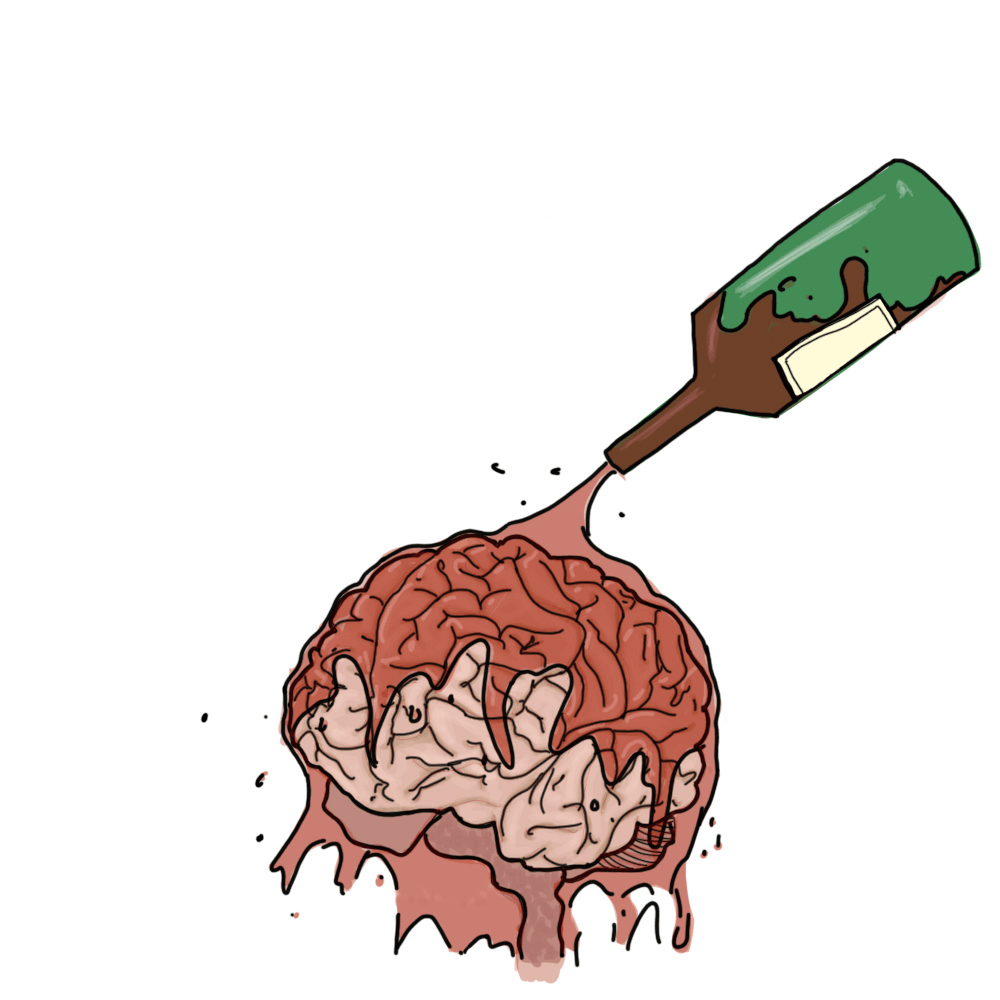A University study published last month shows that a pathway for making memories is changed when alcohol, even in small amounts, is consumed — a finding that has implications for understanding addiction.
The researchers investigated the role that environmental cues play in memory and addiction, wrote Karla Kaun, assistant professor of neuroscience and principal investigator, in an email to The Herald. “While you are drinking, you are forming memories for cues in your environment, like the feel of the glass or the bouquet of your wine, that become associated with the feeling of being intoxicated,” she wrote.
The study examined flies and showed that the consumption of alcohol affects the Notch pathway, a cell-signaling pathway that remains unaltered as species evolve and is associated with the misregulation of a gene that influences memory formation. Specifically, this gene is involved in associative learning, which is a mechanism for addiction.
“We speculate that this contributes to why memories for cues associated with addictive substances like alcohol and other drugs of abuse are so long-lasting, and can trigger relapse events in people recovering from alcohol or substance-use disorders,” Kaun wrote.
The study chose to test flies because researchers can use “tools available for precise manipulation of genes,” particularly for neurons and circuits, Kaun wrote.
Emily Petruccelli, assistant professor of biology at Southern Illinois University and lead author of the paper, added that “fruit flies are really amenable to genetic manipulation and … have a much more rapid lifespan.” This allowed the researchers to quickly test a variety of techniques, such as brain staining and microscopy, and approach the problem from diverse angles. “In general, the fly is really good for testing kind of off-the-wall or crazy, weird ideas,” Petruccelli said. Flies let researchers find “new, unexpected things that we can go on and test later,” she added.
The study can help other researchers form their own hypotheses on mammalian models. “This could be something that kickstarts a really big domino effect because the pathway can control a lot of different genes,” Petruccelli said. “Mammalian researchers will know where to look” in future studies, she added.
“I find it very … interesting that this Notch pathway has a role … that’s related to alcohol memory,” said Ulrike Heberlein, a senior fellow at the Janelia Research Campus who was unaffiliated with the study. This study “provides not only some really exciting new scientific insight but it also provides potential for eventual development of therapies for alcoholism,” she added.
Since researchers know the Notch pathway changes with alcohol consumption, “we can now start to look to see if drugs that affect Notch signaling could potentially alleviate cravings,” Kaun wrote. She also hopes to identify which genes the Notch pathway targets and gain a better understanding of the mechanisms behind cravings, she added.





